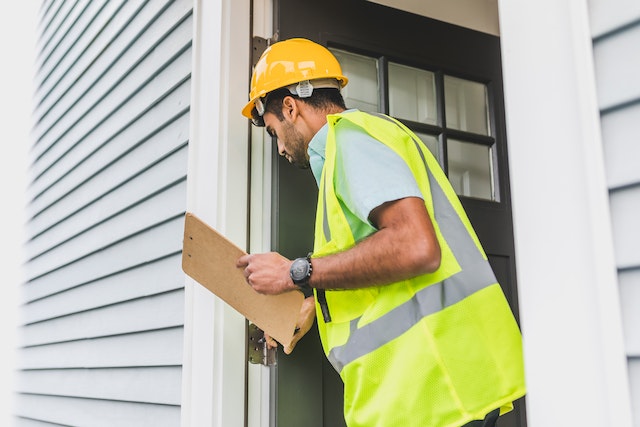|
Purchasing a home is no small endeavor, making every step leading up to the final handshake crucial. One of the most significant stages in this journey is the home inspection. Why? Because it sheds light on the property's hidden flaws, ensuring you're not buying into a money pit. The process of negotiating home repairs after inspection doesn't just identify problems—it sets the stage for a dance between buyer and seller. This dance can often determine the property's real value and affect the final price tag. With each party wielding its respective power, it becomes a test of balance, negotiation, and strategy. For buyers, understanding this balance can be the difference between a wise investment and an expensive oversight. Dive in as we explore the ins and outs of this pivotal process. The Art of Decoding Inspection ReportsUnraveling the nuances of an inspection report is akin to deciphering a complex code. At first glance, it's a jumble of findings, but with careful analysis, one can discern between major flaws that pose structural or safety risks and minor ones, which might be mere cosmetic blemishes. However, even minor defects can hint at bigger, looming issues if overlooked. For a buyer, understanding these distinctions is paramount. Not all flaws warrant negotiation or repair, but failing to address those with long-term implications can mean costly repairs down the line. A thorough grasp of the report is the foundation for a wise home investment. Zeroing in on Deal-Breakers: Major Repairs Worth Battling ForEvery house, be it vintage charm or modern marvel, will have quirks and imperfections. However, certain defects should raise immediate red flags for potential buyers. Roof and structural issues can threaten the very integrity of the home, often hiding escalating costs beneath their surfaces. Similarly, malfunctions in the electrical, plumbing, or HVAC systems are not just expensive to fix but can also present potential safety hazards. When these significant problems emerge in an inspection, they become the battlegrounds worth standing firm on. It's essential for buyers to recognize these deal-breakers, ensuring the home's safety, functionality, and overall worth. Letting Go of the Small Stuff: When to Overlook Minor RepairsIn the process of negotiating home repairs after inspection, it's crucial to pick your battles wisely. Not every imperfection warrants a back-and-forth between a homeowner and a buyer. Cosmetic flaws, like a chipped paint job or an old carpet, might be eyesores but don't impact the home's overall functionality. On the other hand, functional defects, even if minor, could evolve into bigger headaches down the line. The key is to assess the cost-to-benefit ratio: Will fixing this now save future hassle and expense? By differentiating between these two categories, people can make informed decisions, ensuring they invest time and resources where it truly counts. Negotiating Home Repairs After Inspection: Drafting a Compelling Repair Request LetterCrafting a repair request letter is a pivotal step post-inspection. S, to ensure it resonates with the seller, precision is paramount. Instead of vague requests, the letter should detail each required fix, articulating the specific areas of concern. Moreover, it's essential to bolster these requests by referencing the inspection findings. By doing so, the buyer is not merely stating a preference but is presenting a well-founded argument based on professional assessments. Such an approach not only demonstrates the buyer's seriousness but also makes it harder for the seller to dismiss the requests, paving the way for fruitful negotiations. The Dance of Negotiation: Strategies for a Win-Win OutcomeEngaging in post-inspection negotiations is a delicate ballet, requiring a mix of tact, strategy, and foresight. To initiate a successful dialogue, buyers should approach with a balanced demeanor—neither too aggressive nor too passive. This creates an atmosphere of mutual respect, fostering more productive discussions. Throughout the process, it's essential to differentiate between non-negotiable repairs and areas with room for flexibility. While certain findings might justify a firm stance due to safety or financial implications, others can be areas for compromise. Recognizing this distinction and being open to alternative solutions, such as repair credits or price adjustments, can often bridge gaps. In the end, the goal is a win-win: a safe, value-justified home for the buyer and a fair deal for the seller. Alternative Solutions: Beyond Traditional RepairsAs you gear up for a move, it's essential to carefully plan your finances by creating a comprehensive moving budget to account for unexpected costs. Sometimes, traditional repairs post-inspection might strain the budget. Instead, consider more flexible avenues. Buyers can negotiate for seller concessions or credits, allowing them to allocate funds for other moving expenses. Alternatively, a reduction in the sales price can offer immediate financial relief. By exploring these solutions, buyers ensure a smoother transition into their new home and create a comprehensive moving budget. This approach ensures that every aspect of the transition is financially sound, from repair costs to moving trucks. Walking Away: When Negotiating Falls ThroughThe path to homeownership is often filled with anticipation and excitement but also rife with tough decisions. Sometimes, even after diligent negotiations, an agreement remains elusive. In such instances, buyers must weigh the allure of the house against the looming shadow of potential repair costs. Does the investment still make sense if those costs spiral? It might become prudent to re-evaluate one's position in the housing market. Stepping back can provide clarity, allowing customers to assess other available options or even await better opportunities. While walking away can be emotionally taxing, it often safeguards against regrettable financial entanglements. ConclusionOne of life's most significant decisions is purchasing a home, demanding both attention to detail and informed choices. Negotiating home repairs after inspection is more than just a step in the buying phase; it's a protective measure ensuring the value of your investment. Conducting due diligence is paramount, helping buyers distinguish between cosmetic concerns and substantial defects. When uncertainties arise, turning to expert advice can offer clarity and direction, helping them make decisions with confidence and foresight. By approaching negotiations with a keen eye and informed perspective, one ensures their home is both a safe haven and a sound investment.
Author’s Bio: Alexandra Mitchell is a seasoned real estate expert with over a decade of experience in guiding home buyers through the intricacies of property acquisition. She has a keen eye for identifying potential pitfalls in homes and has aided countless individuals in making informed decisions. When she's not writing or consulting, Alexandra enjoys renovating her century-old cottage and hosting first-time homebuyer workshops. Comments are closed.
|
Archives
July 2024
Categories
All
|





 RSS Feed
RSS Feed
